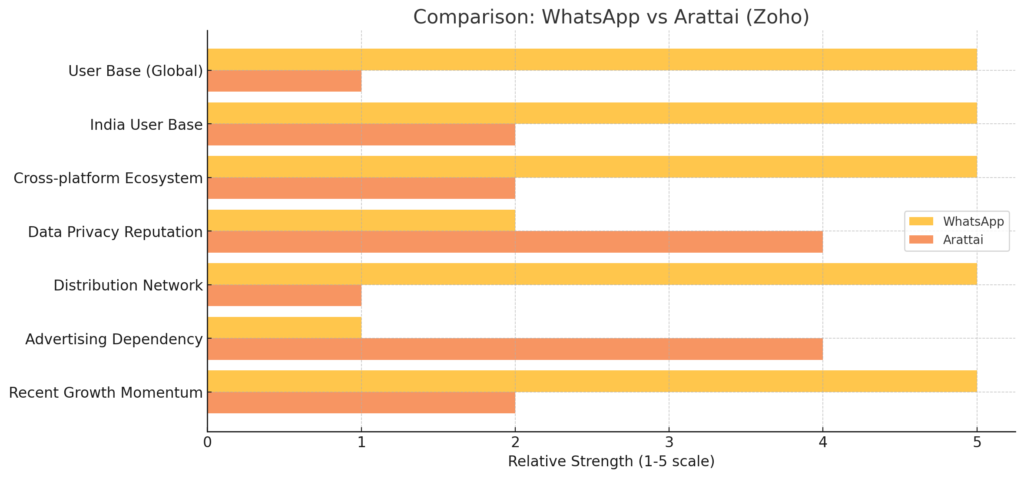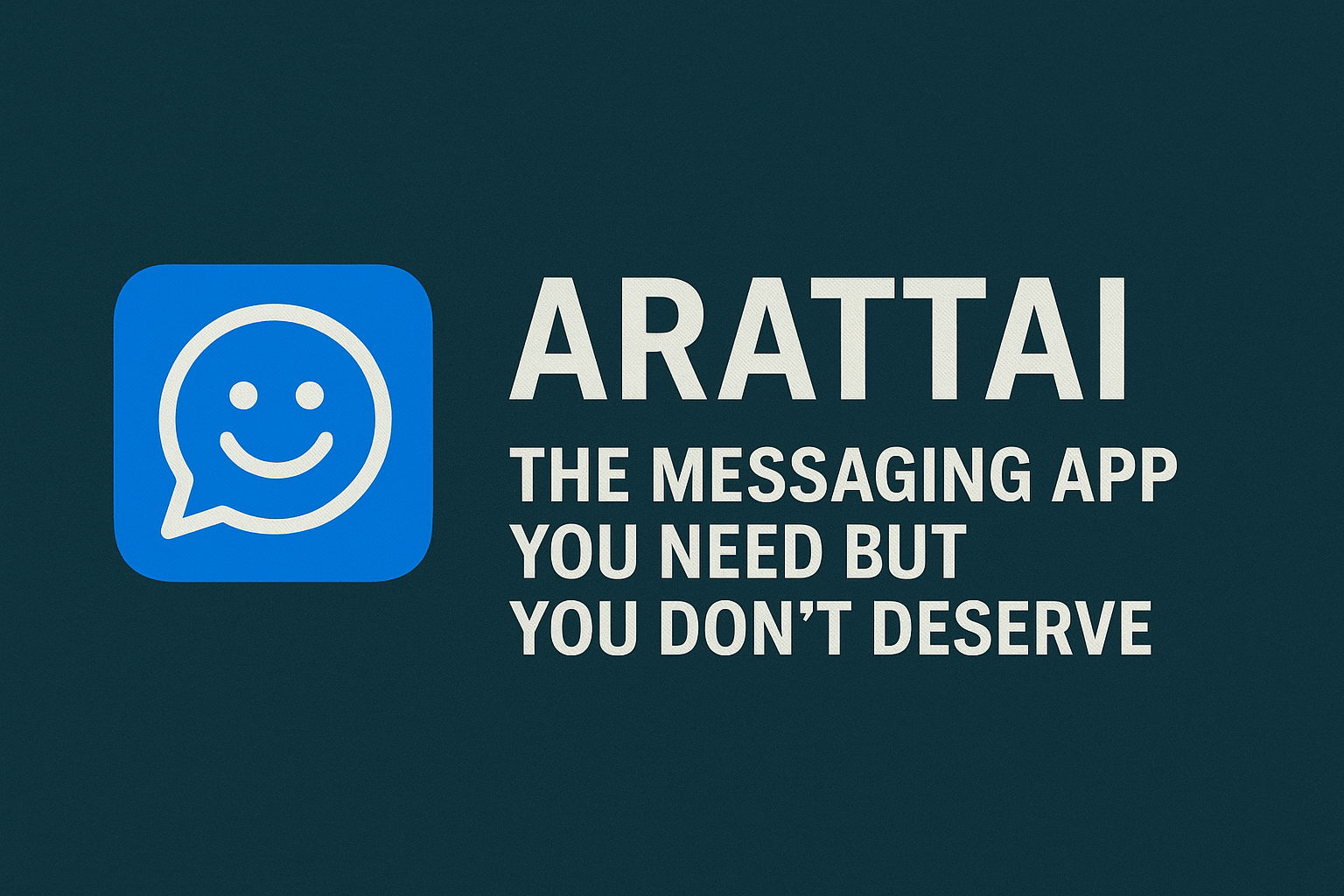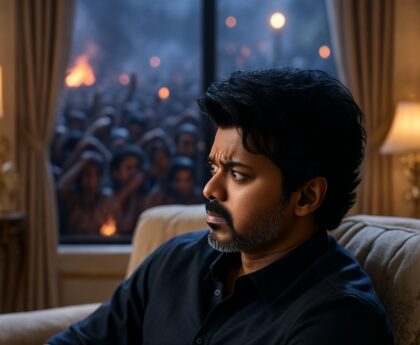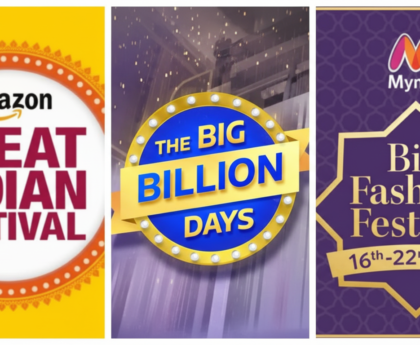When Zoho — the Chennai-based SaaS powerhouse founded by Sridhar Vembu — announced its new messaging app Arattai (Tamil for “chat”), excitement rippled across India’s tech circles. At last, here was a homegrown alternative positioned as a potential rival to WhatsApp, a platform used by more than two billion people worldwide.
Here are the official download links for Arattai from Arattai’s website:
- 📱 Android (Google Play Store): Download Arattai for Android
- 📱 iOS (Apple App Store): Download Arattai for iPhone/iPad
- 💻 Desktop (Windows/Mac/Linux): Download Arattai for PC
Supporters hailed it as a moment of digital self-reliance, a chance to reduce dependence on Big Tech monopolies. Ministers and political figures praised the initiative, and social media briefly erupted in enthusiasm. Yet, as the initial buzz fades, serious questions remain: can Arattai truly dent WhatsApp’s dominance?
While we support Zoho’s vision and admire its courage to step into this highly competitive space, there are seven major challenges that cast doubt on Arattai’s chances of success.
1. WhatsApp’s Global Monopoly
WhatsApp is not just a messaging app; it is an ecosystem entrenched in the daily lives of billions. From families in India to businesses in Brazil, WhatsApp is the default mode of communication. Its sheer ubiquity makes it almost irreplaceable. Arattai, despite Zoho’s brand reputation, faces an uphill battle in convincing users to switch.
2. Breaking Indian Dependency on WhatsApp
Even within India, where Zoho might have the strongest base, WhatsApp has become ingrained. People’s personal and professional networks revolve around it. Migrating away means losing seamless connectivity — and in a network-driven service, convenience always trumps nationalism.
3. The Name Controversy: Pride vs. Practicality
One of the earliest flashpoints around Arattai has been its Tamil name. Some argued that the name is difficult for non-Tamils to pronounce and suggested an English alternative. This quickly spiraled into heated debates: Tamil users accused critics of linguistic bias, even while many of the same voices have historically opposed Hindi imposition.
The irony is hard to miss. If inclusivity is the goal, insisting that everyone accept a Tamil name while rejecting Hindi reflects a form of political hypocrisy. While the name itself shouldn’t matter, the controversy exposed cultural divisions that risk overshadowing the product’s strengths.
4. Political Endorsements: A Double-Edged Sword
Some Indian ministers have publicly praised Arattai. While this boosts visibility, it also invites skepticism. In a country where political support is often viewed with suspicion, such endorsements can create polarisation. Trusting politicians to drive adoption may actually limit appeal among neutral or opposition-leaning citizens.
5. WhatsApp’s Distribution Advantage
WhatsApp didn’t grow in isolation. Its parent company, Meta, leveraged Facebook and Instagram to turbocharge user acquisition and engagement. Arattai lacks such an integrated distribution pipeline. Without similar synergies, achieving exponential growth will be significantly harder.

6. Advertising Costs Without a Native Network
Zoho has no comparable global social network to drive free user acquisition. This means heavy advertising spend will be required to build momentum — something that even a profitable company like Zoho will struggle to sustain at the scale necessary to rival WhatsApp.
7. Fading Social Media Frenzy
In its first three days, Arattai trended heavily online. But the excitement has already cooled. We’ve seen this story before: Koo, once touted as India’s alternative to Twitter (now X), had a meteoric rise but eventually “bit the dust.” Without sustained user engagement, Arattai risks being another flash in the pan.
A Step in the Right Direction, But Future Uncertain
Despite these challenges, Arattai deserves appreciation. Building a secure, homegrown messaging app is no small feat. Zoho’s reputation for privacy and independence from venture capital makes it more trustworthy than many Silicon Valley competitors.
However, trust and goodwill may not be enough. Messaging apps succeed when they reach critical mass, and WhatsApp’s grip on global communication is nearly unbreakable. Unless Arattai can deliver a radically different value proposition or solve a unique India-specific problem, it risks becoming another “good idea” that failed to scale.
Final Word
Arattai’s arrival is a symbolic victory for Indian tech — a statement that global giants can be challenged. But symbolism must translate into practical adoption. Zoho’s bold step should be celebrated, yet the path ahead is daunting.
In the battle of David versus Goliath, Arattai may have fired its first shot. But whether it can sustain the fight remains the big question.




